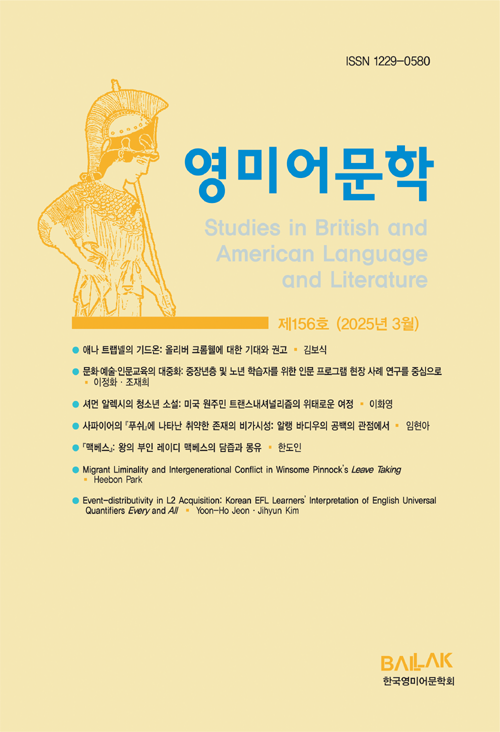Winsome Pinnock’s 1987 play Leave Taking occupies an important historical position in the growth of black migrant theatre in the UK, having been the first play by a living black female playwright to be performed at the National Theatre. Pinnock’s play describes the plight of post-Windrush first-generation migrants from Jamaica to the UK, caught between two cultures and two homelands and struggling to survive in a hostile environment. Also depicted are the identity crises and intercultural anxieties of the main character’s two second-generation British-born daughters and the resulting alienation that can arise between migrant parents and their children. This paper examines the play’s central themes of diaspora, family, education, and identity within the framework of liminality, showing how the themes are subsumed into the characters’ preliminal, liminal, and postliminal experiences. Drawing on various notions of liminality, the study discusses how Leave Taking, itself an indication of an ongoing liminal transition from an all-white, male-dominated theatre to a multicultural, non gender-specific platform, investigates contemporary issues within a context of separation, transition, and incorporation. From this perspective, it is argued that the play’s focus on mother-daughter relations, institutional neglect, and the angst of othered marginals, functions as an effective indicator of unsettling transitions occurring in the current postcolonial, complex society.
1. Introduction
2. Liminality: A Framework for Analysis
3. Leave Taking : Liminers and Marginals
4. Conclusion
Works Cited
(0)
(0)
